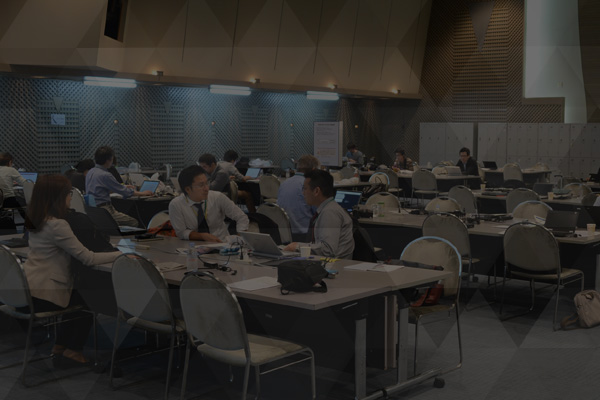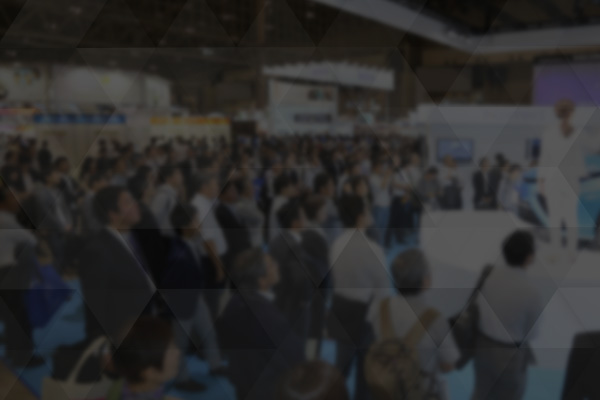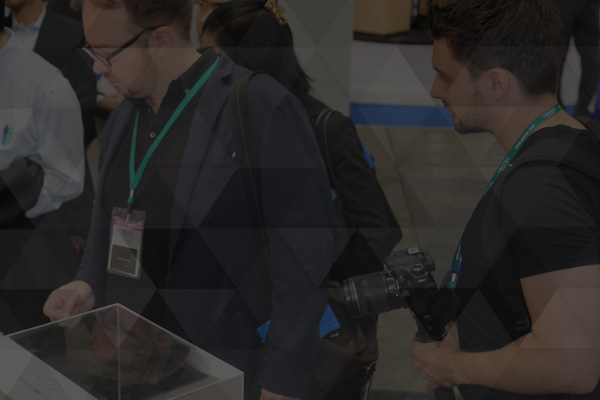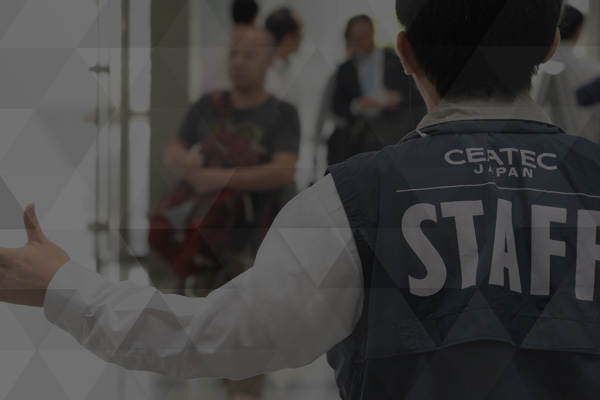Experience first-hand innovations in CPS/IoT that will drive changes to our society
A number of different research organizations and companies have set up booths to allow visitors to experience first-hand the new technologies and services in CPS/IoT that will drive changes to our society – this section of booths is called NEXT Street.
On one corner of NEXT Street visitors can find the Rakuten Institute of Technology and our exhibits, which center around two systems that aim to change and expand on the way we use our smartphones.
One such system is HITOKE, which aims to make the buzz about a particular product visible to the consumer. Simply point the smartphone camera at a product and the user will be taken to online shops where they can see how that particular item is selling, as well as reading reviews.
Another system is called WallSHOP, which uses QR codes embedded into digital signage to empower users to control the digital signage via their smartphone. Simply tap on your phone to choose the products you want to learn more about and WallSHOP will deliver product information to the user via the digital signage.
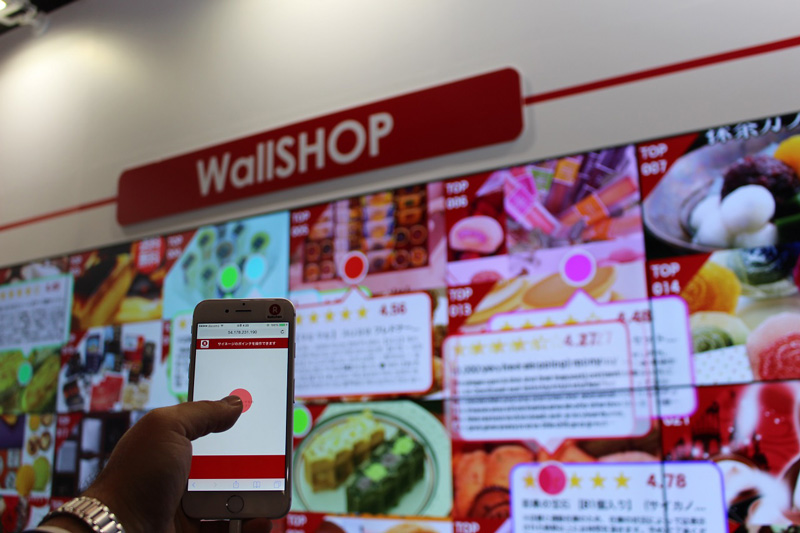 Move the cursor shown on the smartphone screen to select and view information about a number of products shown on the digital signage – users can select specific products they want to learn more about
Move the cursor shown on the smartphone screen to select and view information about a number of products shown on the digital signage – users can select specific products they want to learn more about
The possibilities of smart-tourism
At the booth run by the Cabinet Office of the Government of Japan, the focus is on technology that assists with infrastructure operations, maintenance and management. Many pin their hopes on robots when it comes to the future of infrastructure testing and disaster prevention and response, and at the Cabinet Office booth one can see why as the latest robot technology has been harnessed to support infrastructure management.
Kinki Nippon Tourist Co., Ltd. has proposed a new use for smart glasses, which steadily continues to proliferate across a number of sectors. The Smart Tourism initiative, a joint development project together with Fuji Television Inc., Toppan Printing Co., Ltd., Asukalab Inc. and Seiko Epson Co., Ltd., makes use of smart glasses to display the name of a particular site or location as well as additional information for the visitor.
For example, if someone came across the castle ruins left with only a stone wall, wearing the smart glasses one might be able to see a reproduction of the original castle buildings, which adds value to the experience of visiting and/or learning about historical sites of interest. The headsets can also provide audio guidance as well as displaying subtitles or text information in a variety of different languages. Technology such as these smart glasses can serve to support the growing demand from the inbound tourist market in Japan.
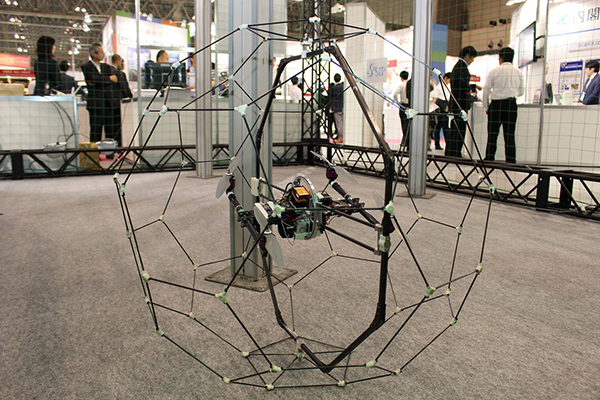 A robot capable of checking on infrastructure maintenance and conditions
A robot capable of checking on infrastructure maintenance and conditions
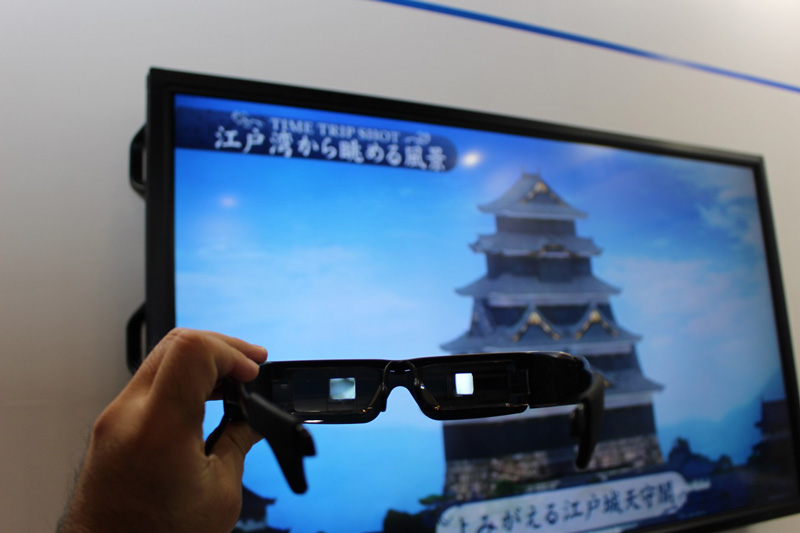 Visitor information displayed using smart glasses technology (at the KNT booth the smart glasses data – in this case tourist information – is displayed on a monitor)
Visitor information displayed using smart glasses technology (at the KNT booth the smart glasses data – in this case tourist information – is displayed on a monitor)
- Booth No.
- 4N63
- Related links
-
Rakuten Institute of Technology : http://rit.rakuten.co.jp/
Cabinet Office, Government of Japan : http://www.cao.go.jp/
Kinki Nippon Tourist Co., Ltd. : http://www.knt.co.jp/kouhou/index.html


